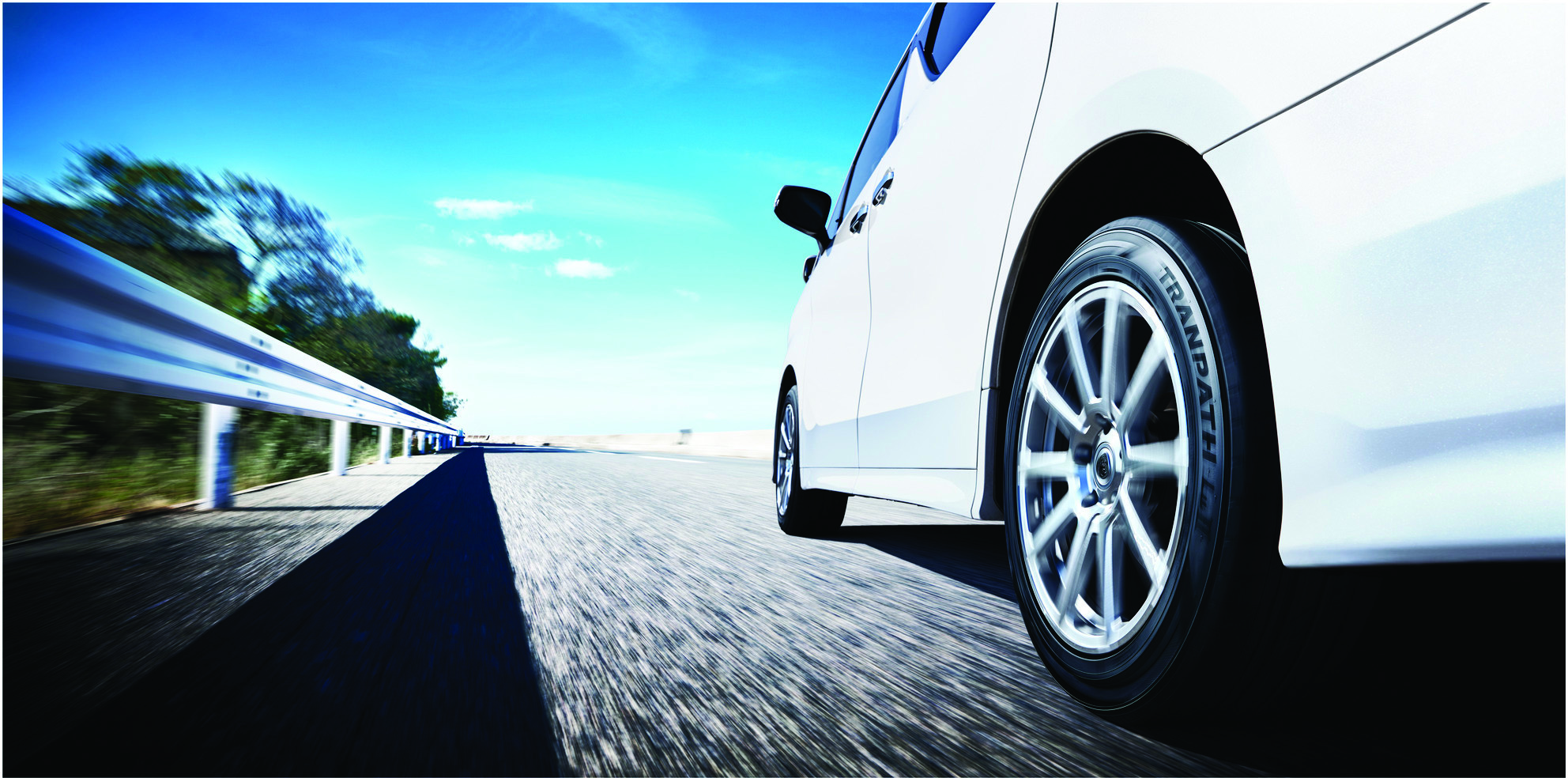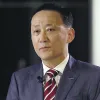Toyo Tire Corporation
Toyo Tire worked with Dassault Systèmes to build a new simulation process and data management system based on the 3DEXPERIENCE platform and its industry solution experience SMARTYRE to bring together company-wide product development data.
A global fanbase
Having your customers as your number one fans is surely the goal most businesses strive for. It doesn’t get much better than having your own set of cheerleaders championing everything about your brand - keen to buy your products and promote you to their own network of friends and family.
This is exactly what Japanese-based tire manufacturer Toyo Tire strives for. The company is a self-proclaimed tire lover and wants its customers to feel the same way.
“We think that TOYO TIRES’ customers are more than just customers who come to us to replace their tires,” said Masayuki Kanai, Director, Vice President & Senior Corporate Officer, Division General Manager of the Digital Innovation Division at Toyo Tire. “We say that they are our fans—many of our customers come to the shop to buy our products because they want them.”
Customers choose to buy from Toyo Tire because they trust in the brand and value the products’ high specification features, performance and progressive design, giving them confidence to drive in all weather conditions and terrains.
“Apart from the performance of tires, the main reason our fans like our tires is the customized design.” Kanai said. “They are taking the chance and choose tires with a special design that stands out from the regular ones.”
Innovative future
Toyo Tire has big plans for its business. It recognizes the significant changes afoot in the automotive industry as car makers develop new modes of transport and advances continue to be made around connected cars and cities. As a new generation of electric cars come to market, for example, the company is committed to creating innovative tires to suit their specific needs.
“Electric vehicles have a high torque and as a result the lifetime of the tire gets shortened. This means our tire development has to react and needs to build more durable tires,” Kanai said. “And tires are no longer just tools that enable driving. Today’s tires can operate as sensors and provide information to the driver, the surrounding car and even to other stakeholders.”
As it seeks to build a new generation of tires for the everevolving automobile, Toyo Tire needed to accelerate its product development processes and put innovation at the core of its activities to develop new products and technologies that evolve with industry and consumer expectations.
“We have been good at product development until now, but we believe that this is not enough to keep up with the transformation of cars,” Kanai said. “So, we will leverage our research in three ways—material, mechanical design and manufacturing.“
To support this new approach, Toyo Tire decided to build a new simulation process and data management (SPDM) system which could rely on to support its innovation efforts. The company already had a long-standing relationship with Dassault Systèmes, so, in many ways, it made perfect sense to work with them as a partner on this project.
“At this stage of decision making, the design department has already introduced Dassault Systèmes’ product lifecycle management (PLM) system and the deployment was almost complete,” said Dr. Yoshihiro Tanaka, general manager of the Advanced Technology Development Department in the Technology Development Division at Toyo Tire. “Since PLM and SPDM have a strong affinity, we decided that it would be best to build an SPDM system using Dassault Systèmes technology too.”
The company partnered with Dassault Systèmes’ to develop its SPDM system, called T-MODE, based on the 3DEXPERIENCE® platform.
“The biggest reason for using the 3DEXPERIENCE platform is to accelerate our product development cycle as we continue to keep pace with the accelerating rate of innovation in the automotive industry,” Kanai said.
We can reduce the time required to develop the tire. And I can say that using the platform we were able to shorten this time by 25%.
Simulation meets design
With T-MODE up and running, the company now has an integrated platform for its R&D processes, helping it to develop innovative products more efficiently than ever. Katsutoshi Ohishi, deputy division general manager of the Digital Innovation Division at Toyo Tire, explained that this is largely a result of the company’s ability to consolidate its data, gain a better overview of its processes and carry out both tire design and drive simulation to optimize the structure, pattern and compound of its tires according to specific vehicle types and usages.
“During the design phase, past design data, test results, simulation results and reports are very important,” Ohishi said. “We believe that by utilizing the 3DEXPERIENCE platform, we can link all this data, improve the design and make the end-to-end process more efficient.”
Before using the 3DEXPERIENCE platform, Toyo Tire’s data was held in siloes, preventing users from being able to easily access all the information they needed.
“We had a lot of simulation data, but it was used as individual data,” Tanaka said. “Therefore, data couldn’t be shared. The SPDM system now integrates our core simulation and high-performance computing technology.”
In the future, the company plans to add more data streams to the platform, not only to improve product quality, but also to drive efficiencies across its manufacturing process.
“If we incorporate production-related information into the platform in the future, we will be able to consider the ease of production and production conditions when designing tires,” Ohishi said.
User-friendly processes
It is critical that T-MODE is intuitive to use. By constructing an environment where designers and engineers can access to conduct simulations themselves, the company has successfully reduced design lead times and increased the number of viable designs it brings to market.
“I think it is a huge advantage that it is possible to handle various design information, simulation information and experimental information on one platform,” Tanaka said. “And it is very easy to use.”
Engineers no longer need to log into different systems and servers to get the information they need.
“With the 3DEXPERIENCE platform, I can access different databases from a web browser,” said Hayato Yogou, assistant manager of the Advanced Technology Development Department in the Technology Development Division at Toyo Tire. “I can even extract the information I need from each database on a single screen.”
The result is that designers and engineers are able to work more productively and gain valuable insights to support them as they develop new products.
“The 3DEXPERIENCE platform gathers not only the simulation data, but also other features” Yogou said. “If you search for tire specifications or performance, the results are telling you where the data comes from and who has worked on it already. It also allows you to retrace the thinking processes and decisions of the engineers that have worked on this data before you.”
Users benefit from design reuse and knowledge sharing across the company. “With the 3DEXPERIENCE platform, I can use the database to search not only simulation data, but also information such as designs and experiments across the company,” Yogou said. “Also, it’s easy to define access privileges, so you can only edit data if you’re authorized to, helping to prevent unintended changes.”

Limitless prototypes
Toyo Tire’s product development has come a long way in recent years thanks to its ability to simulate rather than rely solely on physical prototypes.
“About 30 years ago, the tires we developed were put onto the vehicle as they were, then tested and evaluated by driving the vehicle before being released to our customers,” Kanai said. “When using a physical prototype, the number of tests we can do are limited by the number of prototypes that we have available. Simulation is a much better option for determining tire quality and safety. Tests can be run infinitely, which is crucial for our engineers who are looking to identify and make safety improvements.”
Using T-MODE, Toyo Tire can accurately simulate specific environments, scenarios and conditions on its tire designs such as wear, vibration, noise, steering stability, fuel efficiency and durability to improve product quality and meet its original equipment manufacturing clients’ stringent safety requirements.
“With virtual simulation, TOYO TIRES now has endless possible ways to test the tires under different conditions, and our engineers can improve their engineering of a high-performance tire and judge what improvements are needed before developing it.,” Ohishi said. “When designing a tire, the designer needs to verify the performance of the tire while adding various conditions such as air pressure and load,” Tanaka added. “By applying process automation, it’s possible to simulate multiple settings in parallel.”
Being able to simultaneously carry out tire structure analysis, through tire simulation, and vehicle behavior analysis, through driving simulation, Toyo Tire is succeeding in continuously improving product safety and speeding up its design cycle, while operating more sustainably too.
“We cannot shorten the time required to create the mold,” Kanai said. “However, we can reduce the time required to develop the tire. And I can say that using the platform we were able to shorten this time by 25%.”
We believe that by utilizing the 3DEXPERIENCE platform, we can improve the design and make the end-to-end process more efficient.”
Winning together
Katsutoshi Ohishi likens Toyo Tire’s relationship with Dassault Systèmes to one of a driver and his car in a race.
“TOYO TIRES is the driver,” he said. “Drivers are required to improve their driving skills and to make appropriate decisions. Our advanced and efficient tire design is equivalent to the skill and judgment of a racing driver. Dassault Systèmes, meanwhile, is an advanced vehicle, undercarriage and engine, supporting us as we navigate our way forward and pursue technological development.”
Through its partnership with Dassault Systèmes, Toyo Tire now has a reliable R&D technology platform, perfectly suited to its business requirements.
“We had a discussion with Dassault Systèmes during a value assessment about our business challenges,” Ohishi said. “They understood our challenges and shared their advice. They did not only share know-how or best practices to sell the products but mapped their technology to meet our challenges.”
The company also has learned some important lessons along the way.
“The experience gained in collaboration with Dassault Systèmes is to reaffirm the importance and use of data,” Ohishi said. “Simply managing data does not increase its value. The relevance of each piece of data is important, and I think that linking it all together will further enhance the value of that data.”
Toyo Tire’s long-term mission is to create excitement and surprise with products that exceed customer expectations and enrich society, and in the process Toyo Tire has developed a growing base of loyal customers worldwide.
“Even though the automotive industry is changing, TOYO TIRES will continue to make tires that have a sophisticated design and high performance according to the driver’s preferences for an outstanding experience,” Kanai added.

Focus on Toyo Tire Corporation
Founded in 1945, Toyo Tire Corporation is one of the world’s leading tire producers. As the mainstay tire business, which accounts for more than 85% of net sales, the company has been improving and strengthening their tire supply system, mainly in Japan and North America, and providing high-performance, high-quality tires globally.
Products: Tires for passengers vehicles, light trucks, trucks and buses, construction machinery and industrial trucks
Revenue: JPY393,220 million (Dec 31, 2018)
Employees: 12,000+ employees (Dec 31, 2018)
Headquarters: Itami City, Hyogo, Japan
For more information: www.toyotires-global.com


